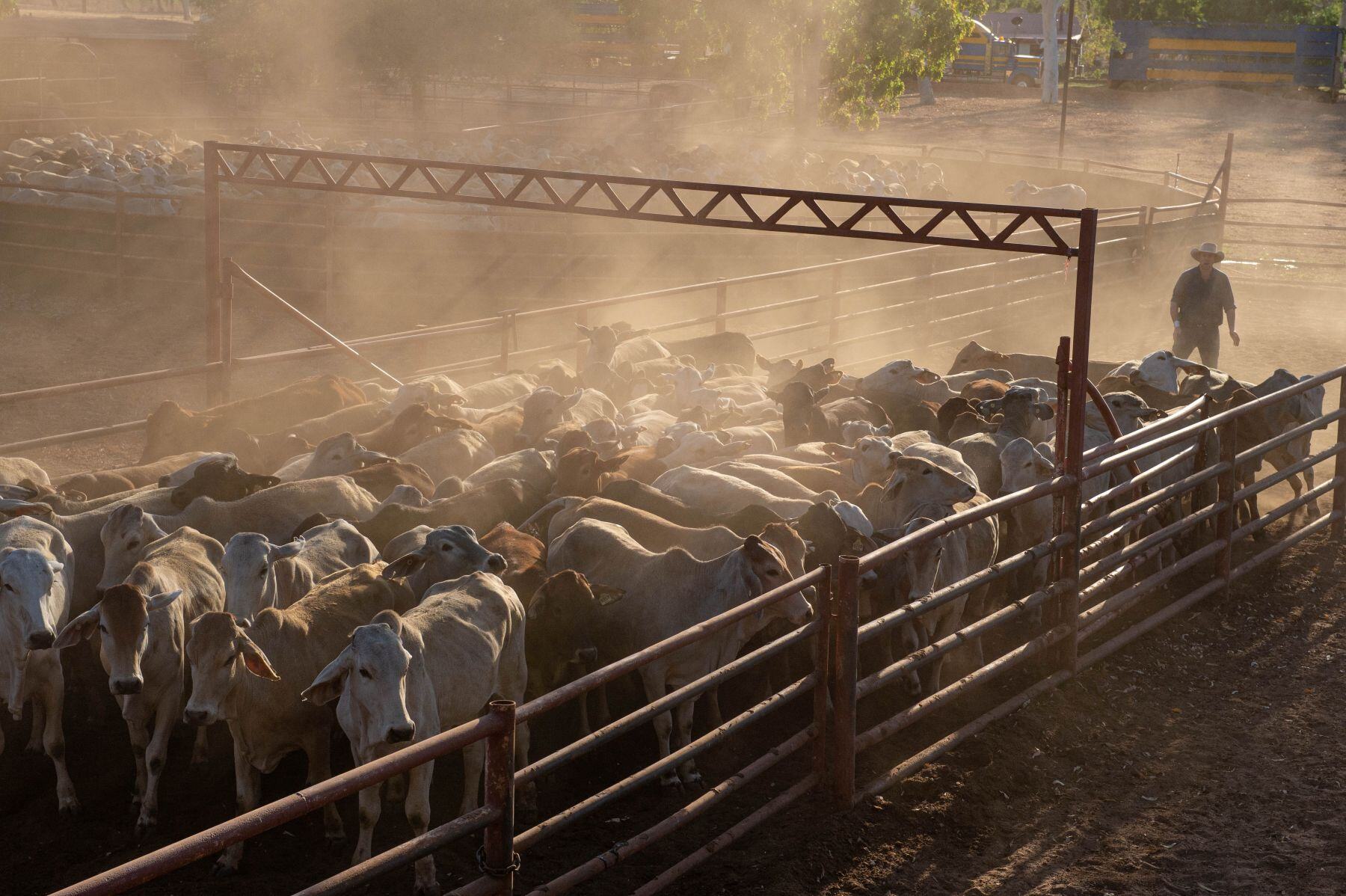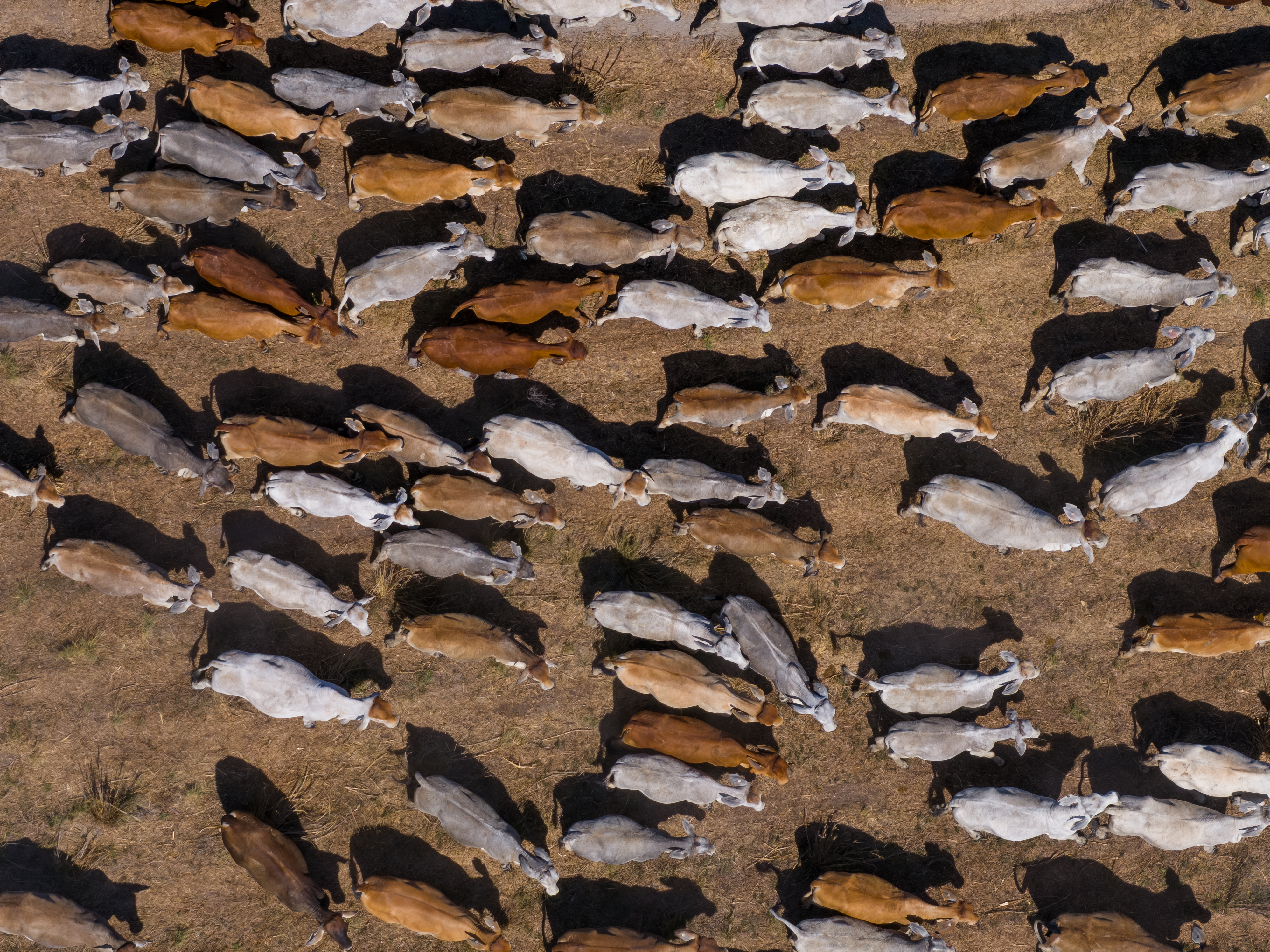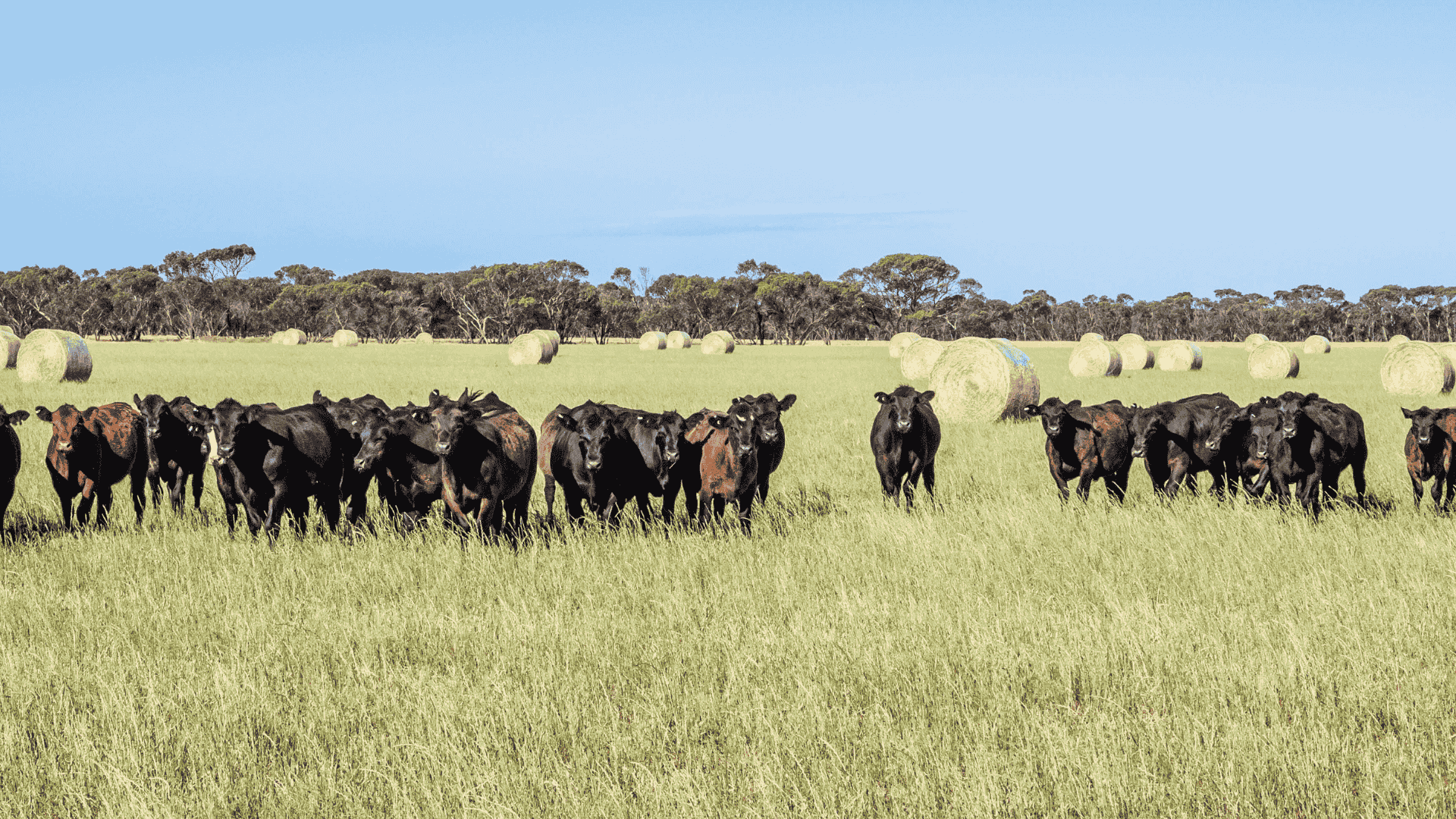Drought-hit farmers to get loan and pest-control boost
Farmers will soon be able to access up to half a million dollars to build drought resilience, while pest-culling efforts are also ramped up.

US President Donald Trump has announced a 10% tariff on all Australian products - including Aussie beef and lamb.
In fact, Australian beef was singled out during his speech held at the Rose Garden from 7am AEST this morning, triggering fears that it may be banned entirely .
"Australia bans, and they're wonderful people, wonderful everything, but they ban American beef," President Trump said.
"Yet, we imported $3 billion of Australian beef from them just last year alone, yet they won't take any of our beef. They don't want it because they don't want it to affect their farmers. And you know what? I don't blame them, but we're doing the same thing right now, starting about midnight tonight, I would say."
It has since been confirmed there is no ban on Australian beef going into the US.
However, sweeping reciprocal tariffs were introduced across the world, which started with "baseline" 10% tariffs on all imports into the US and went as high as 49% for Cambodia and 46% for Vietnam. China received a tariff of 34%.
LIBERATION DAY RECIPROCAL TARIFFS 🇺🇸 pic.twitter.com/ODckbUWKvO
— The White House (@WhiteHouse) April 2, 2025
President Trump said no one should be upset because he was "being nice" and only charging half of what the US is being stung with.
During his nearly one-hour speech, which culminated in signing the Executive Order needed to bring the tariffs into affect as of midnight US time, or 3pm AEST, he stated than non-monetary trade barriers were worse than monetary tariffs repeatedly.
"In many cases the friend is worse than the foe in trade balances," he said.
He said that his farmers and ranchers were "brutalised" across the world.
"In a few moments, I will sign a historic Executive Order instituting reciprocal tariffs on countries throughout the world. Reciprocal. That means they do it to us and we do it to them. Very simple. Can't get any simpler than that."
At the conclusion of the signing, President Trump declined to answer a question when asked what he had to say to people who were concerned about an increase in prices.
President Trump's harsh words on Australian beef triggered fears the unpredictable leader may ban beef imports entirely - but this has since been cleared up. There are no bans on Australian beef imports to the US.
Red Meat Advisory Council (RMAC) Chair John McKillop has confirmed that there is no ban in place.
“While Australian meat exports will shortly be subjected to a 10% tariff, there is no ban on Australian red meat and our trade with the US will continue," Mr McKillop said.
“However, it remains a disappointing decision from the US, in stark contrast to our 20-year partnership under the Australia-United States Free Trade Agreement (AUSFTA)."
He also said the decision failed to recognise that Australian red meat contributes to stable food supplies and prices in the United States.
"Australian producers can be assured that we operate in a strong global trading environment with high demand for our red meat from over 100 markets," he said.
“The US will continue to be a key market despite these tariffs."
Mr McKillop said the decision would impact US consumers.
“Imports serve as a shock absorber during cyclical supply fluctuations when US meat production is down. This is the case at the moment with their overall herd at 70-year lows due to drought. Cow slaughter in the US was down 23% in 2024 and expected to decline near 10% in 2025,” Mr McKillop said.
“This means that imports are critical for the US to supply their domestic consumers.
“For beef, a major component of Australia’s exports to the US supports a strong appetite for hamburgers. Without Australian lean beef blended with local fatty trim, the US would need to use higher value cuts in their burgers and miss out on valuable export opportunities. This in turn optimises value for US ranchers.
“Australian beef is in an estimated 6 billion hamburgers consumed each year in the US and this tariff will cost the US consumer an additional US$180b per year.
“The total impact to the American consumer as a result of tariffs on Australian red meat will be AU$600m.”
Mr Albanese said the tariffs were "totally unwarranted" and "not the act of a friend" but ruled out retaliatory tariffs.
"President Trump referred to reciprocal tariffs – a reciprocal tariff would be zero, not 10%," he said.
He also defended Australia's strong biosecurity measures, which do not allow fresh US beef to be imported into our country.
"We have made it very clear to the United States that we will not compromise on biosecurity," Mr Albanese said.
"We will not weaken the measures that protect our farmers and producers from the risks of disease or contamination. Indeed, we've made it a priority to strengthen biosecurity, because one of the things that makes Australian food and fibre the best in the world is that people everywhere know that it stands for quality, it also stands for safety."
READ MORE: INDICATORS: Aussie livestock market momentum outpaces US tariff impact

Farmers will soon be able to access up to half a million dollars to build drought resilience, while pest-culling efforts are also ramped up.

Australian beef is a hot commodity despite trade tussles with China and the United States, while domestic prices wane as farmers recover from floods...

Stay up to date with the latest livestock trends AuctionsPlus brings you the latest insights from Australia’s livestock markets, direct to the...